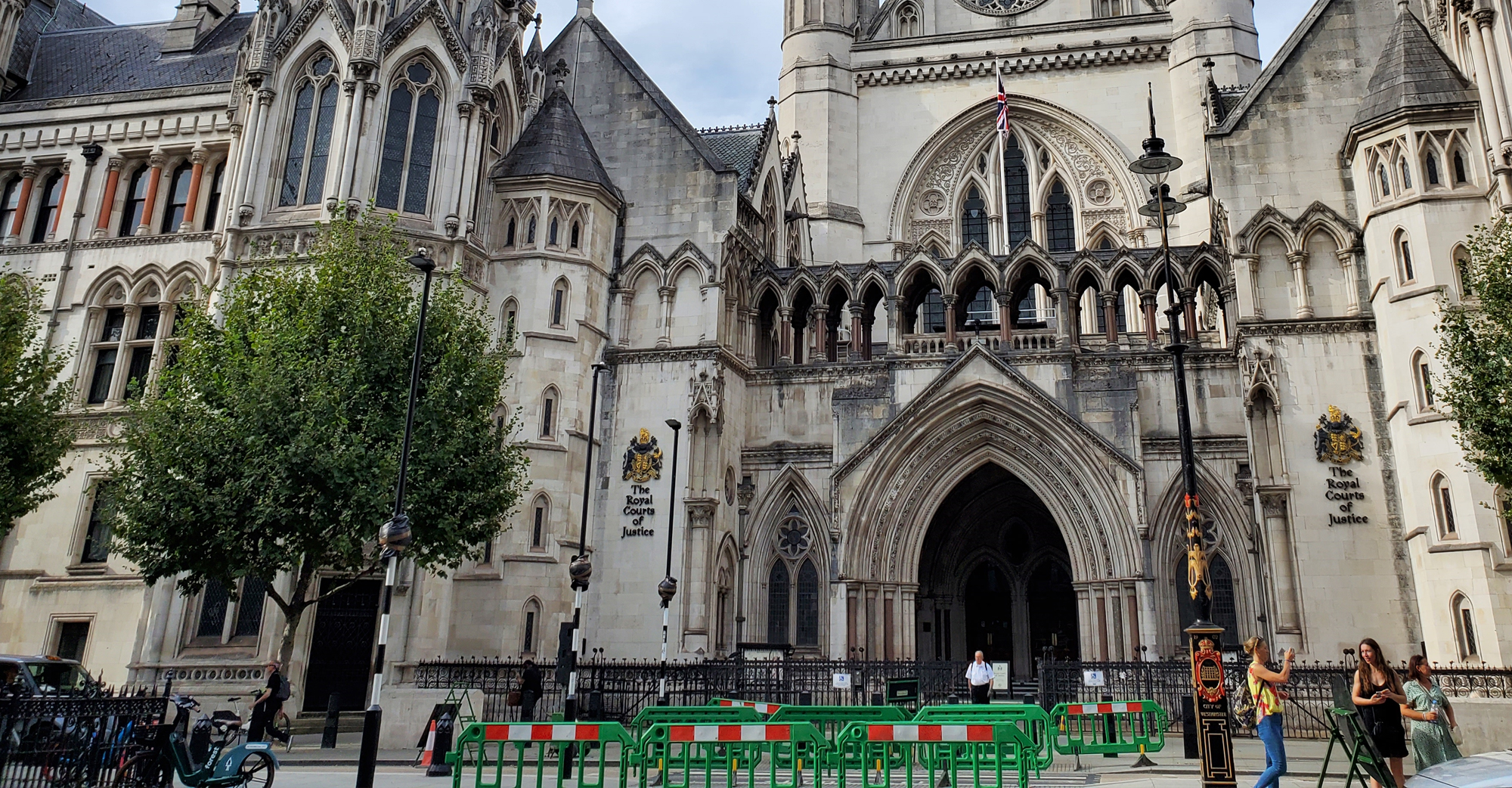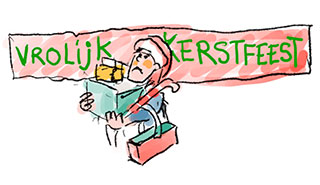Does the story of Hanukkah appear in the Torah? What nation pronounces Happy/Merry Christmas as ‘Hyvää joulua’? These and more are in our new Global Holiday Trivia game, Part 3.
Global Trivia 15
You have multiple choices. An explanation and a reference comes after every question. There is no fixed order so you can choose from any of the boxes. The SHADED BOXES are what you already answered. Your final score is at the END. Don't hit REFRESH unless you want to start all over. This is part of a continuing series in Traveling Boy.
Start
Congratulations!
You have completed Global Trivia 15.

You scored %%SCORE%% out of a possible 5 points.
Your performance was: %%RATING%%
Your answers are highlighted below.
Question 1 |

Does the story of Hanukkah appear in the Torah?
A | Yes |
B | No |
Question 1 :
B. No
The story of Hanukkah does not appear in the Torah because the events that inspired the holiday occurred after it was written. It is, however, mentioned in the New Testament, in which Jesus attends a "Feast of Dedication." According to the Talmud, one of Judaism’s most central texts, Judah Maccabee and other Jews who took part in the rededication of the Second Temple witnessed what they believed to be a miracle. Even though there was only enough untainted olive oil to keep the menorah’s candles burning for a single day, the flames continued flickering for eight nights, leaving them time to find a fresh supply. This wondrous event inspired the Jewish sages to proclaim a yearly eight-day festival. (The first Book of the Maccabees tells another version of the story, describing an eight-day celebration that followed the rededication but making no reference to the miracle of the oil.) The word, "Chanukah" has several different, yet related sources. It comes from "Kah," the Hebrew equivalent of 25 and "Chanu," meaning rest. The word "Chanukah" is also connected with the words "dedication" (chanukat) and "education" (chinuch). On the twenty-fifth day of the Hebrew month of Kislev, the Maccabees rested from their battle. They marched victoriously into the holy Temple in Jerusalem, ready to rededicate the holy service. They would forever serve as role models — educators — to future generations.
The story of Hanukkah does not appear in the Torah because the events that inspired the holiday occurred after it was written. It is, however, mentioned in the New Testament, in which Jesus attends a "Feast of Dedication." According to the Talmud, one of Judaism’s most central texts, Judah Maccabee and other Jews who took part in the rededication of the Second Temple witnessed what they believed to be a miracle. Even though there was only enough untainted olive oil to keep the menorah’s candles burning for a single day, the flames continued flickering for eight nights, leaving them time to find a fresh supply. This wondrous event inspired the Jewish sages to proclaim a yearly eight-day festival. (The first Book of the Maccabees tells another version of the story, describing an eight-day celebration that followed the rededication but making no reference to the miracle of the oil.) The word, "Chanukah" has several different, yet related sources. It comes from "Kah," the Hebrew equivalent of 25 and "Chanu," meaning rest. The word "Chanukah" is also connected with the words "dedication" (chanukat) and "education" (chinuch). On the twenty-fifth day of the Hebrew month of Kislev, the Maccabees rested from their battle. They marched victoriously into the holy Temple in Jerusalem, ready to rededicate the holy service. They would forever serve as role models — educators — to future generations.
Question 2 |
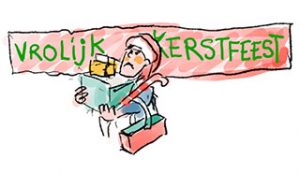
What nation pronounces Happy/Merry Christmas as 'Hyvää joulua'?
A | Bulgaria |
B | Croatia |
C | Finland |
D | Senegal |
E | Estonia |
Question 2 :
C. Finland
Question 3 |
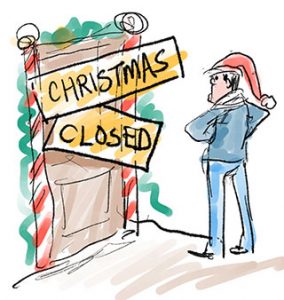
Name the U.S. state that once banned the celebration of Christmas
A | Alabama |
B | Idaho |
C | Kansas |
D | Montana |
E | Massachusetts |
Question 3 :
E. Massachusetts
In 1620, when the Puritans first arrived in the New World, they banned Christmas, labeling it as the “Foolstide.” After all, there is not one mention of Christmas in the bible. They fiercely believed and decreed that the only religious holiday worth celebrating was the Sabbath. This Puritanical ban was practiced quite strictly and anyone who disobeyed it was arrested. Even the Governor of Massachusetts experienced this anti-Christmas policy when he got put behind the bars for sponsoring a Christmas service. The ban lasted until the middle of the 18th century,
In 1620, when the Puritans first arrived in the New World, they banned Christmas, labeling it as the “Foolstide.” After all, there is not one mention of Christmas in the bible. They fiercely believed and decreed that the only religious holiday worth celebrating was the Sabbath. This Puritanical ban was practiced quite strictly and anyone who disobeyed it was arrested. Even the Governor of Massachusetts experienced this anti-Christmas policy when he got put behind the bars for sponsoring a Christmas service. The ban lasted until the middle of the 18th century,
Question 4 |
Name the country whose Happy/Merry Christmas greeting is ‘Веселого Різдва' Veseloho Rizdva’
A | Bulgaria |
B | France |
C | Germany |
D | The Netherlands |
E | Ukraine |
Question 4 :
E. Ukraine
In Ukrainian, Happy/Merry Christmas is 'Веселого Різдва' Veseloho Rizdva.
Bulgarian: Vesela Koleda
Dutch: Vrolijk Kerstfeest
French: Joyeux Noël
German: Frohe Weihnachten
In Ukrainian, Happy/Merry Christmas is 'Веселого Різдва' Veseloho Rizdva.
Bulgarian: Vesela Koleda
Dutch: Vrolijk Kerstfeest
French: Joyeux Noël
German: Frohe Weihnachten
Question 5 |
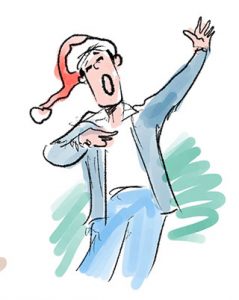
Who wrote the lyrics to Auld Lang Syne?
A | Robert the Bruce |
B | Robert Burns |
C | Lord Byron |
D | Mary, Queen of Scots |
E | Sir William Wallace |
Question 5 :
B. Robert Burns
Auld Lang Syne is a Scots-language poem written by Robert Burns in 1788 and set to the tune of a traditional folk song of unknown origin. The most accurate plain English interpretation of the Auld Lang Syne’s famous title is ‘Old long since’, or ‘For the sake of old times.’
The song itself is reflective in nature, and is basically about two friends catching up over a drink or two, their friendship having been long and occasionally distant. The words were written by Scottish poet Robert Burns in 1788, but Burns himself revealed at the time of composing it that he had collected the words after listening to the verse of an old man on his travels, claiming that his version of ‘Auld Lang Syne’ marked the first time it had been formally written down.
Auld Lang Syne is a Scots-language poem written by Robert Burns in 1788 and set to the tune of a traditional folk song of unknown origin. The most accurate plain English interpretation of the Auld Lang Syne’s famous title is ‘Old long since’, or ‘For the sake of old times.’
The song itself is reflective in nature, and is basically about two friends catching up over a drink or two, their friendship having been long and occasionally distant. The words were written by Scottish poet Robert Burns in 1788, but Burns himself revealed at the time of composing it that he had collected the words after listening to the verse of an old man on his travels, claiming that his version of ‘Auld Lang Syne’ marked the first time it had been formally written down.
Once you are finished, click the button below. Any items you have not completed will be marked incorrect.
Get Results
There are 5 questions to complete.
You have completed
questions
question
Your score is
Correct
Wrong
Partial-Credit
You have not finished your quiz. If you leave this page, your progress will be lost.
Correct Answer
You Selected
Not Attempted
Final Score on Quiz
Attempted Questions Correct
Attempted Questions Wrong
Questions Not Attempted
Total Questions on Quiz
Question Details
Results
Date
Score
Hint
Time allowed
minutes
seconds
Time used
Answer Choice(s) Selected
Question Text
All done
Deplorable! You need to travel more! This is pathetic!
Deplorable! You need to travel more! This is pathetic!
Embarrassing! Keep trying! We know you're better than that. Play the game again.
Not that bad! But not good either. Play the game again.
Pretty good ... but not perfect.
Perfect! Are you brilliant traveler or what?
